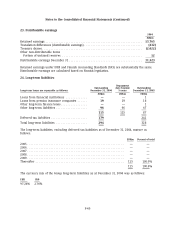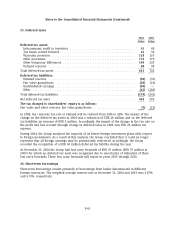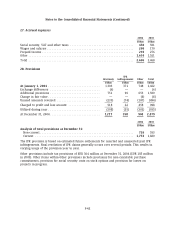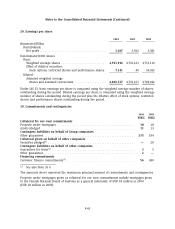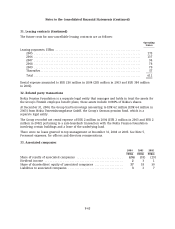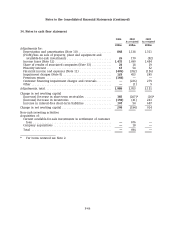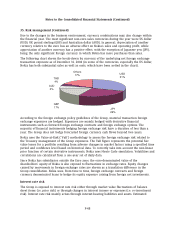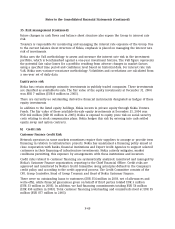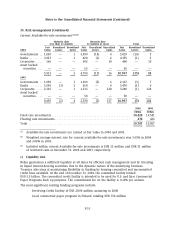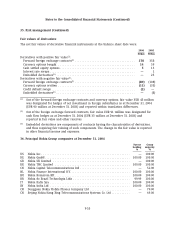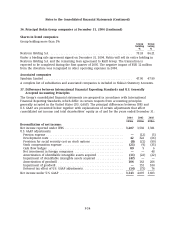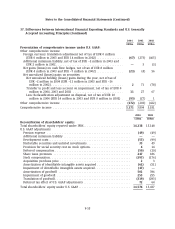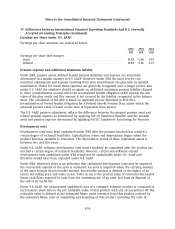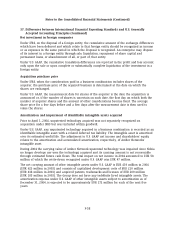Nokia 2004 Annual Report Download - page 174
Download and view the complete annual report
Please find page 174 of the 2004 Nokia annual report below. You can navigate through the pages in the report by either clicking on the pages listed below, or by using the keyword search tool below to find specific information within the annual report.Notes to the Consolidated Financial Statements (Continued)
35. Risk management (Continued)
future changes in cash flows and balance sheet structure also expose the Group to interest rate
risk.
Treasury is responsible for monitoring and managing the interest rate exposure of the Group. Due
to the current balance sheet structure of Nokia, emphasis is placed on managing the interest rate
risk of investments.
Nokia uses the VaR methodology to assess and measure the interest rate risk in the investment
portfolio, which is benchmarked against a one-year investment horizon. The VaR figure represents
the potential fair value losses for a portfolio resulting from adverse changes in market factors
using a specified time period and confidence level based on historical data. For interest rate risk
VaR, Nokia uses variance-covariance methodology. Volatilities and correlations are calculated from
a one-year set of daily data.
Equity price risk
Nokia has certain strategic minority investments in publicly traded companies. These investments
are classified as available-for-sale. The fair value of the equity investments at December 31, 2004
was EUR 7 million (EUR 8 million in 2003).
There are currently no outstanding derivative financial instruments designated as hedges of these
equity investments.
In addition to the listed equity holdings, Nokia invests in private equity through Nokia Venture
Funds. The fair value of these available-for-sale equity investments at December 31, 2004 was
USD 142 million (USD 85 million in 2003). Nokia is exposed to equity price risk on social security
costs relating to stock compensation plans. Nokia hedges this risk by entering into cash settled
equity swap and option contracts.
b) Credit risk
Customer Finance Credit Risk
Network operators in some markets sometimes require their suppliers to arrange or provide term
financing in relation to infrastructure projects. Nokia has maintained a financing policy aimed at
close cooperation with banks, financial institutions and Export Credit Agencies to support selected
customers in their financing of infrastructure investments. Nokia actively mitigates, market
conditions permitting, this exposure by arrangements with these institutions and investors.
Credit risks related to customer financing are systematically analyzed, monitored and managed by
Nokia’s Customer Finance organization, reporting to the Chief Financial Officer. Credit risks are
approved and monitored by Nokia’s Credit Committee along principles defined in the Company’s
credit policy and according to the credit approval process. The Credit Committee consists of the
CFO, Group Controller, Head of Group Treasury and Head of Nokia Customer Finance.
There were no outstanding loans to customers (EUR 354 million in 2003, net of allowances and
write-offs), while financial guarantees given on behalf of third parties totaled EUR 3 million
(EUR 33 million in 2003). In addition, we had financing commitments totaling EUR 56 million
(EUR 490 million in 2003). Total customer financing (outstanding and committed) stood at EUR 59
million (EUR 877 million in 2003).
F-49



